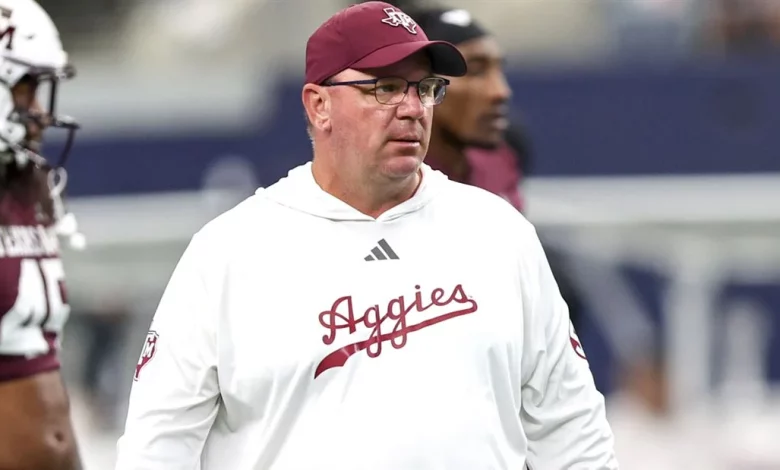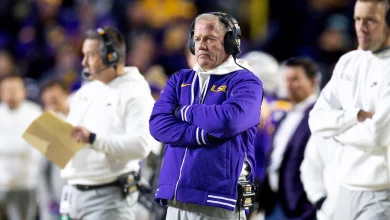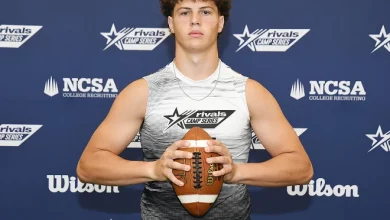Texas A\&M Coach Mike Elko is frustrated by unclear details and uncertainty surrounding the upcoming NCAA settlement’s impact.

In the evolving landscape of college athletics, one thing remains certain: change is constant. For Texas A&M head football coach Mike Elko, however, the current ambiguity surrounding a pivotal NCAA settlement is causing significant frustration. As the NCAA and various stakeholders navigate a complex legal and regulatory environment, Elko’s concerns reflect a wider unease within collegiate sports programs nationwide.
The NCAA Settlement: Background and Significance
Over the past several years, college athletics has faced unprecedented legal challenges, particularly relating to the rights of student-athletes around Name, Image, and Likeness (NIL) compensation and antitrust issues. These challenges culminated in an impending settlement agreement aimed at addressing these concerns while reshaping the governance and financial structure of college sports.
The settlement promises to bring sweeping reforms—potentially changing how student-athletes are compensated, how programs manage recruiting, and how revenue is distributed among schools and conferences. For coaches like Mike Elko, who are responsible for guiding programs through these turbulent waters, clarity on the settlement’s details is essential.
Mike Elko’s Concerns: Navigating Uncertainty
Mike Elko, known for his meticulous preparation and strategic mind, has voiced his growing frustration with the lack of concrete information surrounding the NCAA’s upcoming settlement. In recent interviews and press conferences, Elko emphasized the challenges posed by this uncertainty:
- Operational Ambiguity: Without clear guidelines, Elko finds it difficult to plan recruiting strategies, manage team compliance, and prepare his staff effectively. “We need to know the rules of the road before we can adjust our playbook,” Elko remarked.
- NIL Policy Impact: One major point of concern is how the settlement will influence NIL regulations. While NIL opportunities have already transformed college athletics, the settlement could redefine eligibility rules, compensation limits, and marketing rights. Elko expressed worry about balancing fair treatment of players with maintaining team cohesion and competitive fairness.
- Financial Ramifications: The settlement may alter revenue-sharing models across conferences and schools. Texas A&M, with its high-profile football program, could face changes in budget allocations affecting recruiting budgets, facilities, and staff salaries. Elko noted that this financial ambiguity hampers long-term planning.
The Broader College Sports Context
Elko’s frustration is not isolated. Athletic directors, coaches, and administrators from programs nationwide share similar sentiments about the NCAA settlement’s vague terms. The complexity of the legal agreements, combined with ongoing negotiations among NCAA leadership, schools, and player representatives, has created a cloud of uncertainty.
Many athletic departments are adopting a wait-and-see approach, hesitant to make major strategic decisions until the settlement’s details are finalized and disseminated. This cautious stance, while prudent, puts pressure on programs to remain competitive in the fast-moving recruiting landscape and evolving player expectations.
Implications for Recruiting and Team Management
Recruiting, a cornerstone of college football success, is particularly impacted by the unsettled regulatory environment. Coaches like Elko rely on stable rules to build relationships with recruits and their families, manage scholarship offers, and maintain compliance.
- Recruit Expectations: Prospects increasingly demand clarity on how NIL opportunities will affect their potential earnings and team dynamics. Uncertainty complicates recruiting pitches and may lead some athletes to consider alternatives like professional leagues or transfers.
- Compliance Challenges: Without definitive guidelines, compliance staff face challenges enforcing NCAA rules fairly and consistently. This risks inadvertent violations, sanctions, or reputational harm.
- Team Dynamics: Coaches must balance player expectations with team unity. NIL disparities among teammates or unpredictable eligibility rules could strain locker room cohesion.
Texas A&M’s Strategic Response
At Texas A&M, the athletic department under Director Trev Alberts is actively monitoring the settlement’s progress and preparing contingency plans. Collaboration between coaches, compliance officers, and administrators aims to mitigate risks and maintain stability.
Coach Elko remains focused on controllable elements — emphasizing player development, team culture, and on-field execution. His message to players has been one of resilience and adaptability amid change. “We can’t control everything outside the locker room,” Elko stated, “but we can control our effort, discipline, and focus.”
The Call for Transparency and Timely Communication
A recurring theme in Elko’s comments is the call for greater transparency from the NCAA and related bodies. Coaches and programs seek timely communication to enable informed decision-making.
Industry experts argue that clearer guidelines will benefit all parties, reducing confusion and fostering trust. Transparency can also help ensure that the settlement achieves its goals of fairness and sustainability without unintended consequences.
Looking Forward: What to Expect
While the exact timeline for the settlement’s finalization remains uncertain, stakeholders anticipate announcements and policy rollouts in the coming months. Texas A&M and other programs will need to stay agile, ready to adjust to new realities quickly.
For coaches like Mike Elko, the focus remains on maintaining competitive excellence despite off-field distractions. His leadership will be critical as Texas A&M navigates this transitional era in college athletics.









